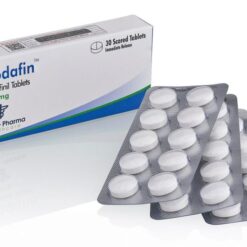Amphetamines
Amphetamines are a class of stimulant drugs that affect the central nervous system. They are used medically to treat conditions suchhttps://topshelf-menu.com/product/high-grade-amphetamines-speed-%f0%9f%a7%a0-%f0%9f%94%a5/ as attention deficit hyperactivity disorder (ADHD) and narcolepsy. These substances increase the levels of certain neurotransmitters in the brain, leading to heightened alertness, attention, and energy.
Uses
- ADHD: Helps improve focus, attention, and impulse control in individuals with ADHD.
- Narcolepsy: Assists in managing excessive daytime sleepiness associated with narcolepsy.
- Weight Loss: Sometimes prescribed for short-term weight management, although this use is less common now.
Mechanism of Action
Amphetamines work by increasing the release of dopamine and norepinephrine in the brain, which enhances mood, alertness, and energy levels. This action contributes to their effectiveness in treating ADHD and narcolepsy.
Forms
- Available in various forms, including tablets, capsules, and extended-release formulations.
Dosage
- Administration: Taken orally, with dosage adjusted based on individual needs and response to treatment.
- Titration: Dosage may be increased gradually to find the optimal therapeutic effect.
Side Effects
- Common: Insomnia, loss of appetite, increased heart rate, and dry mouth.
- Serious: Potential for dependency and cardiovascular issues in some individuals.
Precautions
- Dependence Risk: Amphetamines can be habit-forming; use should be monitored by a healthcare professional.
- Caution in Certain Populations: Should be used carefully in individuals with a history of substance use disorders or certain medical conditions.
Interactions
- Amphetamines can interact with other medications, particularly those affecting the central nervous system, so it’s crucial to inform your healthcare provider about all medications being taken.
| QTY | 28G, 100G, 250G, 500G, 1000G |
|---|
Be the first to review “High Grade Amphetamines (Speed) 🧠 🔥” Cancel reply
Related products
Stimulants
$315.00 – $26,000.00
$650.00 – $3,500.00
Stimulants
$1,400.00 – $2,100.00
Stimulants
$550.00 – $4,900.00
Stimulants
$450.00 – $4,900.00









Reviews
There are no reviews yet.